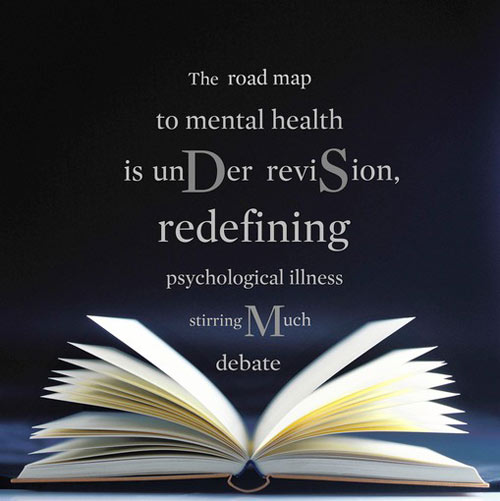The Chicago Tribune
October 12, 2011
When psychiatrists diagnose mental illness, they turn to an unwieldy book called the Diagnostic and Statistical Manual of Mental Disorders, or DSM for short.
First published in 1952, the tome also is used as a standard by researchers, the health insurance industry and pharmaceutical companies.
But the American Psychiatry Association is now in the middle of a historic and controversial revision of its bible. The fifth and highly anticipated edition, DSM-5, has sparked dissension among psychiatrists and generated more than 8,000 public comments on topics ranging from sexual- and gender-identity issues and anxiety disorders to mind-body problems.
The proposed revisions are “based on the most rigorous and up-to-date scientific findings available,” said Dr. Darrel Regier, the DSM-5 task force vice chairman. Inclusion, meanwhile, “means that a mental illness is more likely to be a target of research, which ultimately will improve our understanding how best to diagnose and treat psychiatric disorders,” he said.
Critics say some of the new entries broadly extend some definitions of mental illness and lower thresholds for some existing disorders, which will result in higher rates of diagnoses. That, they argue, “could result in massive overtreatment with medications that are unnecessary, expensive and often quite harmful,” Dr. Allen Frances, chairman of the DSM,-IV task force, wrote in the Psychiatric Times.
Read the rest of the article here OR get the facts about psychiatric disorders here




SHARE YOUR STORY/COMMENT